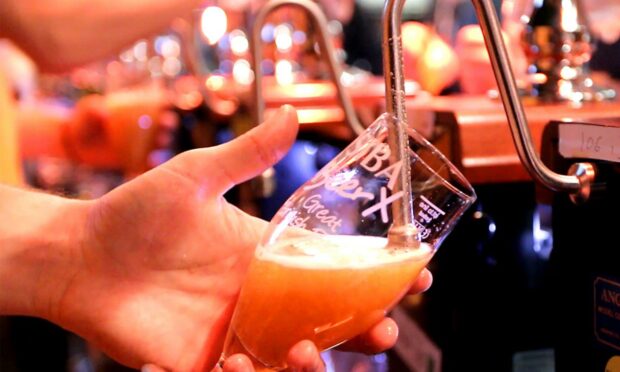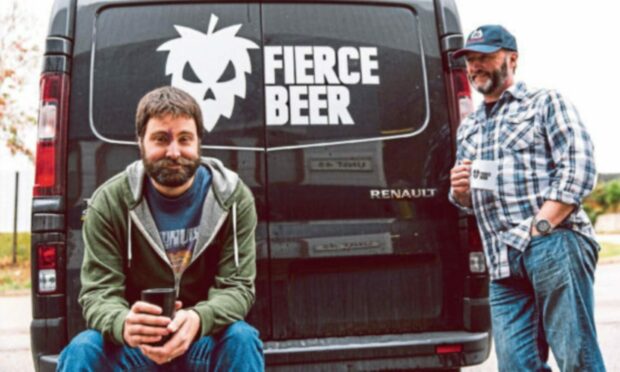An Aberdeen crafts beer company has taken an innovative approach to keep their beer taps running amid nationwide shortages in carbon dioxide supply.
Fierce Beer decided to “get ahead of the curve” and alter how they dispense their product as many companies fear they might be forced to cease operation.
As carbon dioxide is the most commonly used gas to carbonate beer and soft drinks in bars and pubs, a number of firms have raised concerns about their taps running dry – having been left short of supply to dispense their product.
Craig Cargill, digital sales and marketing manager at Fierce Beer, explained this stems from most breweries using stainless-steel kegs, which can only work with CO2.
In the next few weeks, the brewery, which owns bars in Aberdeen, Edinburgh and Manchester, is planning to convert their draft systems across all sites to using nitrogen in their keykegs, instead of CO2.
Keykegs are plastic recyclable kegs, where the product is carbonated without getting in contact with the gas – unlike the commonly-used steel ones where it’s infused directly into the beverage.
 Mr Cargill said this will allow them to use any gas to dispense their product and keep them trading as normal despite the risk of shortages.
Mr Cargill said this will allow them to use any gas to dispense their product and keep them trading as normal despite the risk of shortages.
He said: “We’ve always been looking at opportunities how we can do things differently and better, but that impending shortage of gas made us think about different things we can do to keep our bars open.
“Because our beer comes in keykegs, we’ve been able to convert our draft systems across all three of our bars to allow us to switch to Nitrogen, so we can continue trading even if we run out of CO2.
“Nitrogen is cheaper, it’s easier to get a hold of as it’s more widely available as a standard and it’s better for the environment as well.”
CO2 shortages are another blow to the hospitality industry
Recent reports of a large decline in CO2 supply within the food and drink industry have sparked concerns of shortages having a wider impact across all sections of the sector.
Used in every part of the process, from the production of poultry and pork products to carbonating soft drinks and alcoholic beverages, CO2 is one of the most important elements in food and drink production.
Many companies – including the maker of one of Scotland’s most iconic products, Irn-Bru – have warned that the soaring price of natural gas in the UK could result in a massive drop in production and distribution in the industry.
Since January, the price of gas has seen a steep increase of over 250% which has subsequently led to the closure of two fertiliser plants.
The two plants in Teeside and Cheshire were responsible for 60% of Co2 production in the UK, as CO2 is a by-product of fertiliser production.
Mr Cargill added the current situation calls for other companies to also consider different options to avoid closure.
He said: “Thankfully we haven’t been impacted directly yet, but a lot of the places that we supply have already been told about two or three-week delays before they can get bottles of gas.
“And given how busy some of these sites are, some of them might not even last that long, which is a worry.
“We’ve been okay with a steady supply for the brewery and for our bars, but I think we’re just trying to get ahead of the curve before something drastic does really kick in.
“I think it might make people consider other options. It’s not going to be a solution to fix everybody’s issues, as the main thing is that it works only with keykegs, but some places will benefit from it.
“We are not just looking after ourselves, but we’ll also try and look after other people as well – share that knowledge and help other businesses across the city do the same.”
